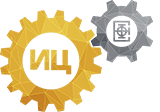Within the Laboratory, we use modern technologies to help people and contribute to increasing the quality and efficiency of medical systems and services.
Underlined by our human-centered approach, we seek to bridge the gap between technological innovation and human and medical needs — building tools that are not only advanced, but also usable, scalable, and impactful.
Through our close collaboration with the Research group for Multimodal Biomedical Engineering – MUBE from the School of Electrical Engineering in Belgrade, we were able to explore applications of various technologies in order to overcome the challenges defined in collaboration with our network of over 20 medical clinics and research centers.
In cooperation with medical institutes and clinics, we conduct scientific research studies that contribute to new scientific knowledge, the development of simpler, objective and reliable monitoring and evaluation of patients’ conditions and to the improvement of the efficiency of clinical decision-making and medical services.
By applying technologies in various fields, ranging from neurology, psychiatry, radiology, urology, rehabilitation and all the way to the fields of sport and applied psychology, our laboratory serves as a living ecosystem for innovation that responds to real-world human and clinical needs.
We are open to new multidisciplinary cooperation in various fields of medicine and healthcare, while our door stays open for new applications in education, sports and the entertainment industry.
We are grateful for the support and partnerships with academic institutions, healthcare providers, startups and industry leaders for joining us in creating transformative impact at the intersection of biomedicine, AI, and societal wellbeing.
Fields of work
Movement analysis and rehabilitation
Development of algorithms for more efficient diagnosis and monitoring of patients with motor impairments
Development of tools for automated and objective assessment of motor capabilities in sports
Objective evaluation and quantification of the rehabilitation process
Assessment of physiological parameters
Monitoring the level of activities to improve the quality of life
Development of algorithms that contribute to new scientific knowledge in the field of psychology, neurology and neuromarketing
Assessment of emotional state and cognitive capabilities
Human – computer interaction
Facial emotion recognition analysis
Development of tools for automated and objective reading assessment
Serious gaming and edutainment
Software solutions for medicine and health
AI based algorithms for supporting the clinical decision-making process
Assistive technologies for improving quality of life of individuals
IT systems designed for clinicians to record and intelligently analyze patient data
Technologies and expertise
Sensor equipment for analysis of body and eye movements (inertial sensors, camera systems, eye tracking)
Synchronized and wireless monitoring of biometric signals (EEG, EMG, ECG, GSR)
Wearable Technology and IoT
Biomedical Device Design
Signal and image processing
Artificial Intelligence / Machine learning / Deep learning
